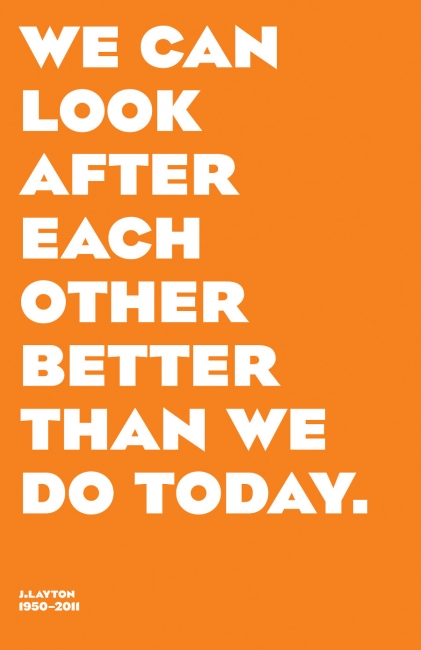thanks for your letter.
Politics aside, this hit me hard. i’ve just lost a summer to anger and fear and despair, despite many good things happening. Optimism i can kind of do, but my hope always goes nowhere, and love? i can’t even start, despair and fear and anger always follow when i try to love, when i even think of the word.
Where do i start, Jack?
i just hope that these sentiments can change the world, on a social as well as a political level, to the point that “get over it” and “who gives a fuck?” and “angst is for the weak” are no longer the answers my friends offer for my pain.

Eisenhower’s worst fears came true. We invent enemies to buy the bombs
It is not democracy that keeps western nations at war, but armies and the interests now massed behind them.
Vote splitting crucial : NDP strength swung Liberal votes to Tories
The first returns suggest the rising support for the NDP has drawn enough votes to allow the Tories to capture 13 seats perviously [sic] held by Liberals and one held by the Bloc Québé cois [sic].
Although the Greens saw their popular vote again fall well below its 2008 level, returns suggest they were helping Tories win or lead in 14 seats where their plurality was smaller than the number of Green votes.
The Day After
Let’s perform an experiment.
Let’s pretend that, instead of there being the Liberals and the New Democrats, we had one party representing the left wing in this country. Call them the Liberal Democrats. Now, granted, there will be some voters who might not want to vote for the Liberal Democrats. (Maybe they don’t like Jack Layton’s moustache.) So let’s assume that, oh, 5 per cent of the Liberal Democrat vote bleeds away to the Tories on the right. While we’re at it, let’s assume that 5 per cent also bleeds to the Greens on the left.
[…]
That’s 31 ridings. Under this scenario, the Tories win 135 seats and the Liberal Democrats 168.
How to Build a Progressive Tea Party
Imagine a parallel universe where the Great Crash of 2008 was followed by a Tea Party of a very different kind. Enraged citizens gather in every city, week after week—to demand the government finally regulate the behavior of corporations and the superrich, and force them to start paying taxes.
[…]
This may sound like a fantasy—but it has all happened. The name of this parallel universe is Britain.
[…]
All the cuts in housing subsidies, driving all those people out of their homes, are part of a package of cuts to the poor, adding up to £7 billion. Yet the magazine Private Eye reported that one company alone—Vodafone, one of Britain’s leading cellphone firms—owed an outstanding bill of £6 billion to the British taxpayers. According to Private Eye, Vodaphone had been refusing to pay for years, claiming that a crucial part of its business ran through a post office box in ultra-low-tax Luxembourg.
Canada Uncut






